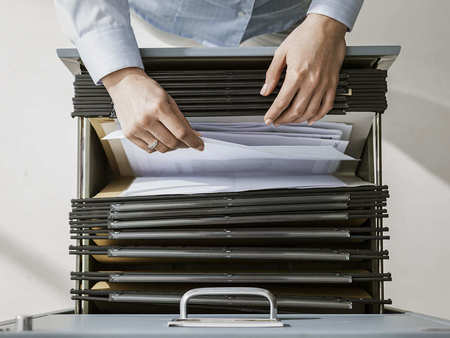
As a business owner, tax season is probably not a time of year you look forward to each time it rolls around. However, you also know that getting your taxes completed and filed as easily and quickly as possible will make your life much easier in the months ahead. Unfortunately, many business owners get so caught up in other activities during the year that they fail to have their records properly organized prior to meeting with their CPA. As a result, tax filing becomes more difficult than necessary. Without various receipts and other documentation, you as a business owner could ultimately pay far more in taxes than is necessary. To avoid this scenario, here are some excellent recordkeeping strategies to simplify this year's tax preparation.
Separate Business and Personal Expenses
If you want to make life difficult for yourself and your CPA, have all of your business and personal expenses lumped together. When this happens, it becomes much more complicated to properly track the money that comes in and goes out of your business. In turn, this makes it more likely that transactions will be miscategorized on internal financial statements and subsequently on tax returns.
Add Records to Files as You Get Them
As you accumulate various documents during the year that will be needed at tax time, make it a point to add these to your files immediately upon getting them. If you don't, and simply lay them down here and there, it is inevitable that important receipts and other documents will be lost, misplaced or accidentally discarded. By filing documentation right away, you will always know exactly where things are when it comes time to submit them to your CPA.
Don't Purge Your Records
One of the most common mistakes seen by CPAs is business owners purging their files of records and receipts that may still be needed at tax time. One of the responsibilities that CPAs have is to ensure that deductions can be backed up by receipts or documentation. In most cases, tax records should be kept for at least three years, and other records pertaining to property or employees should be kept for up to seven years. The IRS provides schedules that you can refer to as to when it’s safe to pure records. But to be on the safe side, don’t purge records or files unless your CPA gives you the okay.
Maintain Separate Bank and Credit Card Accounts
Maintain a separate bank account for your business and a separate business credit card account as well. This will greatly simplify the tax preparation process. This way, you or your CPA won’t have to go through each credit card statement trying to decipher whether or not certain expenses were related to your business.
Have a System and Stick With It
No matter what, decide on a recordkeeping system for your business and stick with it. Whether you choose to keep records on an Excel spreadsheet, have file folders in a cabinet or desk, or use an app or other online system, choose a recordkeeping system you are comfortable with and won't change your mind about a few months later. By establishing a system and sticking with it, you won’t have to reinvent your recordkeeping process over and over again.
Have a Plan B
Just like the Boy Scouts, you should always be prepared just in case disaster strikes. Therefore, always have a Plan B in place for your recordkeeping strategies. For example, if you choose to keep most of your records online, it is also recommended that you still keep the actual physical copies of invoices, receipts, and other important documentation related to your business. After all, if your computer crashes and you don't have backup files in place and have no paper trail to follow, you may find yourself in desperate circumstances come tax time.
Invest in a Good Bookkeeping System
While you rely on your CPA at tax time and at other times during the year, they will not be holding your hand each day as you conduct business. Therefore, it is recommended that you invest in a good bookkeeping system for your business to handle daily and monthly transactions.
If in Doubt, Keep It
While it was mentioned earlier not to purge your files of records you think will no longer be needed should the IRS come calling, it is also crucial you don't simply assume you won't need various documents. This includes such items as appointment calendars, photographs of office equipment, telephone records, vehicle maintenance records, or even photos of you and your client shaking hands at a meeting. As your CPA will tell you, if there is any doubt whatsoever about needing a receipt or other document at some point, it is best to hang on to it for future reference. Therefore, always make sure you not only get receipts for any activity associated with your business, but that you also keep them filed away, just in case.
Pay Attention to Your CPA
When you are meeting with your CPA regarding your taxes or other matters, always pay attention to what they are saying. By doing so, you will become much more aware of what is expected of you as a business owner during the year. For example, if certain IRS guidelines change in an area that will directly impact your business, make sure you are very clear as to how these changes will apply to such areas as sales tax, estimated quarterly income taxes, and other related areas. Be sure to take advantage of this one-on-one time to ask any questions you have, no matter how small it may seem. Getting the details right can make the difference between a simple tax return process and an overly complicated one.
Take the time now to implement these important record keeping strategies into your business practices. Once you do, you will find that the entire tax preparation process goes along very smoothly.
